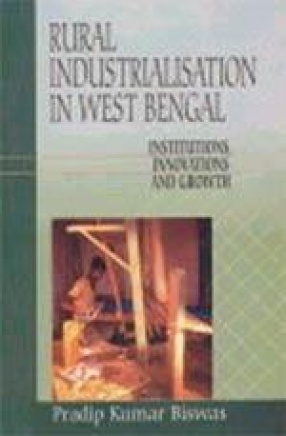This book analyses the pattern and basis of rural industrialisation in West Bengal. Existence of long tradition of crafts, indigenous institutions of skill formation, of trading, of social and community networks of the petty producers, helped a rapid growth of the industries given the favourable conditions created by the state in the 1970s and 1980s. Analysing the experience of England, Japan and China, the book identifies factors like, slow growth of agriculture, ineffective and often contradictory state polices of innovations and training, incentives, credit and reservation as being primarily responsible for the poor performance of the Indian rural industries. These problems notwithstanding, West Bengal government’s active role, made a favourable impact on rural industries. The institutions such as master traders systems and cooperatives facilitated innovation and skill upgradation, smooth adoption of improved technology, promotion of new products. But, due to overall change in the attitude and economic policy of the country towards free market without preparation at the ground level, the rural industries, start declining.
Rural Industrialisation in West Bengal : Institutions, Innovations and Growth
In stock
Free & Quick Delivery Worldwide
reviews
Bibliographic information
Title
Rural Industrialisation in West Bengal : Institutions, Innovations and Growth
Author
Edition
1st Ed.
Publisher
ISBN
8178270714
Length
xxii+365p., Tables.
Subjects





There are no reviews yet.